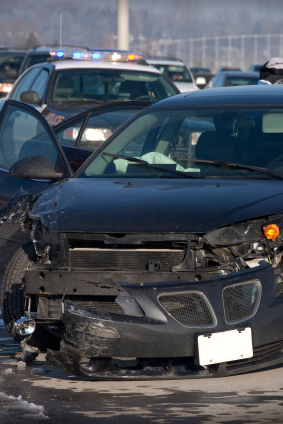
In the seconds after a traffic accident, most people’s thoughts are to check that no one is injured. There is something altruistic in human nature that causes us to look out for the safety of others in a crisis.
But as long as no one is hurt, that altruistic feeling passes quickly. The next thought is who was at fault.
You worry about the damage to your vehicle, whether you had adequate insurance coverage, and whether your premiums will increase.
You worry about whether the other driver has insurance, and whether his insurance is a reputable, trustworthy company.
But then the unexpected happens. The police officer hands you a ticket and a court date. You were sure it was the other person’s fault. Now you have to go to court and face a judge.
This is where a the law may surprise you. In Illinois, police officers generally write a ticket to anyone involved in a crash for failure to reduce speed to avoid an accident.
The statutory citation for this traffic offense is 625 ILCS 5/11-601. Many people are surprised that this is the same statute you would get charged with for speeding.
But the posted speed limit does not determine who was at fault. The fact that you were driving slower than the posted speed limit does not mean you were not responsible.
In one respect, the posted speed limit is like a recommendation. Go over the limit, and you will be ticketed. But just because you are under does not mean that you did not violate the law.
Illinois law requires you to slow down based on the traffic and road conditions:
The fact that the speed of a vehicle does not exceed the applicable maximum speed limit does not relieve the driver from the duty to decrease speed when approaching and crossing an intersection, approaching and going around a curve, when approaching a hill crest, when traveling upon any narrow or winding roadway, or when special hazard exists with respect to pedestrians or other traffic or by reason of weather or highway conditions.
625 ILCS 5/11-601(a).
And if an accident occurs, maybe you should have slowed down. The statute says that you have an obligation to slow down to avoid an accident:
Speed must be decreased as may be necessary to avoid colliding with any person or vehicle on or entering the highway in compliance with legal requirements and the duty of all persons to use due care.
See 625 ILCS 5/11-601(a).
A common situation where this statute applies is in a rear-end collision. In these cases, the second vehicle may be at fault for following to closely. If you rear-end another vehicle, you failed to reduce speed to avoid an accident.
This legal issue is similar to the offense of following too closely:
The driver of a motor vehicle shall not follow another vehicle more closely than is reasonable and prudent, having due regard for the speed of such vehicles and the traffic upon and the condition of the highway.
625 ILCS 5/11-710(a).
Following too close can turn into failure to reduce speed to avoid an accident fast.
While failure to reduce speed to avoid an accident is not a crime, the penalties that follow can be serious.
First, a conviction may cause the Secretary of State to suspend your driver’s license.
Second, a plea of guilty may be used against you by the other driver in a personal injury lawsuit. The other driver may fake injury and sue you for a substantial sum of money. His lawyer may seek damages payable not just by your insurance policy, but also your assets like your home.
Anytime you are in a motor vehicle accident, you should consult with an attorney because of the myriad legal problems that can arise in court.

